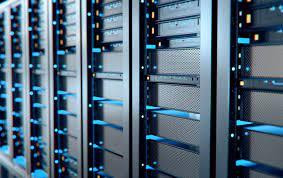Infrastructure is what decides growth for an IT business. The data center is part of the IT infrastructure that is used to store overall data. Whether you already have an on-premise data or not, the question of relying on a colocation data center may often cross your thoughts.
Also, when a business starts expanding, it is common to think about a colocation data center. Well, both of these data storage types have their benefits and disadvantages.
On-Premise Data Centers
On-premise as its name is about storing the data using your in-house hardware and software. Your staff manages this premise, and hence it gives a sense of satisfaction and complete control. The data center can be expanded as per the requirement, and your technical team can access it at any time.
Though there are regulatory requirements for full data access, it still provides more control than a colocation data center.
However, this type of data center has its downsides too. A company has to do the entire setup for all the hardware, software, and the energy to run them 24/7. The construction cost for preparing the data center, and managing it is not cheap at all.
The company has to ensure all necessary security measures to protect the data. If catastrophes happen, it becomes more challenging to recover the data. You may also want a separate place to store another copy of our data that you can access in case something goes wrong with the present data center.
Data Center Colocation
A colo data center lets companies rent the needed space for their data. These centers provide storage, cooling, management, and overall handling of your data. There are many benefits of using a colocation data center over in-premise.
A business doesn’t have to spend on the building, hardware, and software. It doesn’t have to hire a team or staff to handle the technicalities of the data center. Instead, the whole data storage can be outsourced and allocated to a colocation data center that already has the building, storage, and cooling facilities.
In case of calamities, you can rely on the data center and experience a nonstop service.
However, there are disadvantages too! since the colocation data center doesn’t need anything other than the data to store, it can be pretty expensive to get the space on rent.
Plus, the business doesn’t feel the sense of complete control as it has to follow the regulations made by the colo data center. If there is a downtime, you have to call the data center and wait until the issue gets resolved.
Wrapping Up
To decide which one you should go with, first decide your overall budget, whether you can build your infrastructure, hire your team, or not. If yes, then on-premise data center is right for you, else go for a colocation data center in Miami F
lorida , and you would be doing fine.

